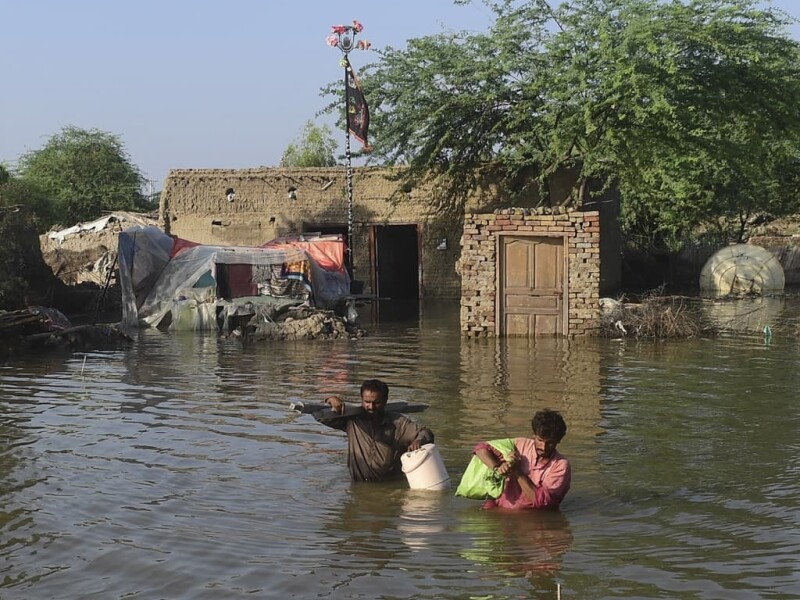KARACHI: Torrential floods in Punjab and Khyber Pakhtunkhwa (KP) have severely disrupted Pakistan’s food supply chain and triggered a sharp rise in vegetable prices in Karachi and other cities of the country, raising concerns over inflation in the coming months.
Green vegetable prices in Karachi have surged by up to 30%, with further increases expected, as large swathes of farmland and transport infrastructure across the country remain submerged or damaged.
The disruption is significant, given that 70–80% of Karachi’s vegetable supply originates from Punjab, according to Afzal Khan, Coordinator of the Vegetable Market Committee Karachi.
The impact is already visible in local markets, with wholesale prices of key vegetables rising by 30% to 40%, according to Shahjahan Sheikh, President of the Welfare Association of the Wholesale Vegetable Market. He warned that the supply of vegetables to Karachi has dropped by 30% to 50% due to the floods.
Ahmad Jawad, Chief Organiser of the Pakistan Business Forum (PBF), stated that the floods have not only destroyed standing crops but have also affected livestock, causing prices of milk and eggs to rise. He warned the situation could worsen if floodwaters enter Sindh, where protective embankments are insufficient.
Call for immediate import measures
Jawad urged the government to waive the 15% import duty on vegetables from Afghanistan to help stabilise prices.
He noted that Afghanistan supplies key commodities such as green vegetables, tomatoes, onions, apples, and melons.
He also called for the immediate import of wheat and rice—both of which have suffered production losses due to floods—via the Trading Corporation of Pakistan (TCP) or private sector channels. He recommended the Ministry of Commerce issue a Statutory Regulatory Order (SRO) to fast-track these imports.
“The government must act now to prevent a full-scale food crisis,” he stressed, adding that a public-private quota system could be an effective way to manage imports.
Sindh at risk
Karachi’s reliance on Sindh for vegetables is also growing as the local harvesting season approaches. Major vegetable-producing regions are Thatta, Badin, Tando Adam, Nawabshah, and Ghotki.
“If Sindh is hit by floods in the coming weeks, Karachi’s vegetable supply will be devastated,” warned Afzal Khan. He added that only 10% of Karachi’s vegetable needs are met by local farms in Malir.
Meanwhile, tomatoes and onions are being brought in from Balochistan, but flash floods have damaged key roads, further restricting supply lines, he added.
Pakistan’s headline inflation clocked in at 3% on a year-on-year (YoY) basis in August 2025, a reading lower than that of July 2025, when it had stood at 4.1%, showed Pakistan Bureau of Statistics (PBS) data earlier this week.
On a month-on-month basis, it decreased by 0.6% in August 2025, as compared to an increase of 2.9% in the previous month and an increase of 0.4% in August 2024.
With millions of people affected by the floods, the pressure on food supply is immense, and prompt government intervention is critical to prevent an inflationary spiral.


